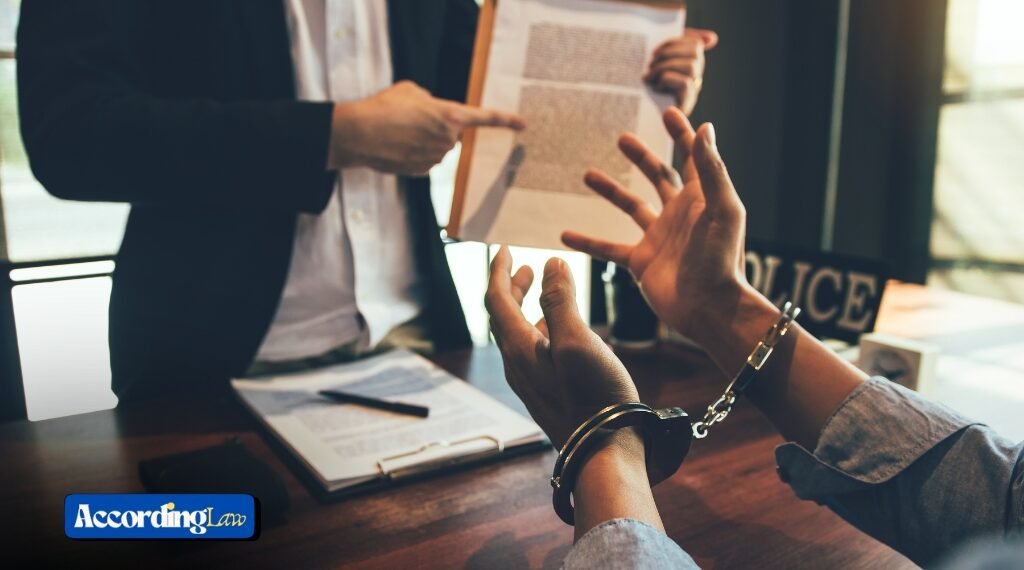When you’re facing criminal charges, the situation can be intimidating and fraught with uncertainty. However, developing a well-organized defense can significantly influence the outcome of your case. Knowing the initial steps, from securing legal assistance to gathering evidence and understanding your rights, is essential for constructing a robust defense. If you are facing accusations such as DUI, seeking help from a dedicated DUI defense attorney can make all the difference in protecting your rights and future.
Being proactive in your legal response and following a structured approach empowers you or your loved ones to challenge criminal allegations effectively. Whether the charges involve alcohol-related offenses or more complex accusations, early and strategic legal action is crucial. Understanding these fundamental principles sets the groundwork for a tailored and effective defense strategy.
Table of Contents
Secure Legal Representation Early
It’s critical to obtain a criminal defense lawyer immediately upon learning about charges or an investigation. An experienced attorney will step in quickly to protect your interests, intervene in police questioning, and prevent you from inadvertently harming your case. Early representation not only preserves valuable evidence but also ensures you don’t make unintentional admissions or procedural errors. Recognized legal experts recommend early intervention as the best course of action in criminal proceedings.
Gather and Analyze Evidence
The foundation of any strong defense lies in meticulously collecting and reviewing all evidence related to the charges. This includes securing physical items, locating and interviewing witnesses, and obtaining digital records. Forensic review by defense experts can reveal inconsistencies or errors in police reports or the prosecution’s evidence. This investigative process is essential for unearthing facts that support the defense and challenge the prosecution’s claims.
Challenge the Prosecution’s Evidence
Discrediting the prosecution’s evidence is vital in undercutting their arguments. Scrutinize the collection, storage, and handling of key evidence for any breaches of protocol or chain-of-custody errors. If evidence is shown to be inadmissible or unreliable, it can lead to a significant weakening of the prosecution’s case. Utilizing techniques such as challenging evidence admissibility or raising doubt about the reliability of testimony is standard practice among skilled defense attorneys.
Develop a Compelling Narrative
A successful defense strategy hinges on creating a clear and cohesive story that aligns with the available evidence. This narrative should articulate the defendant’s perspective, highlighting reasonable doubt and humanizing the accused. Effective communication in court—including clear storytelling, strategic use of facts, and relatable arguments, can substantially sway jurors in the defendant’s favor. Your attorney will strive to ensure that every detail contributes to undermining the prosecution’s case and building juror empathy.
Utilize Expert Testimonies
Expert witnesses are indispensable in cases involving forensic science, psychological evaluation, digital evidence, or technical subjects. Forensic analysts can challenge the validity of physical evidence, while specialists in psychology may attest to the defendant’s mental state at the time of the alleged offense. Leveraging these experts can add authoritative weight to your defense and provide the jury with alternative interpretations that challenge the prosecution’s narrative. The importance of expert testimony in influencing verdicts is frequently discussed in reputable legal commentary at Cornell Law School’s Legal Information Institute.
Consider Plea Bargains and Negotiations
While a courtroom victory is the goal in many cases, sometimes negotiating a plea bargain offers a better outcome—especially when the prosecution’s evidence appears strong or a quick resolution is desired. A seasoned attorney will evaluate the risks and rewards of a plea deal and negotiate terms that reflect your best interests, such as reducing charges or minimizing penalties. Understanding all available options empowers you to make informed decisions about whether to fight or settle.
Prepare for Trial
If your case proceeds to trial, thorough preparation is essential. This involves refining your narrative, practicing witness examination, preparing for cross-examination, and anticipating prosecution arguments. Attention to detail during trial preparation ensures that your defense is cohesive, confident, and ready to counter any strategy presented by the opposition. Mock trials and rehearsals also help identify weaknesses and perfect testimony delivery, critical for delivering a strong defense in court.
Maintain Confidentiality and Communication
Open, honest, and confidential communication with your defense attorney is vital for an effective defense. Sharing all relevant facts, even unfavorable ones, helps your attorney anticipate challenges and avoid surprises in court. Keep case details with your lawyer to reduce self-incrimination or evidence contamination. Confidentiality maintains your defense strategy’s integrity and prevents disclosures that could weaken your case. Building a strong defense involves careful planning, legal expertise, and active participation. Prioritize expert legal advice, thorough case analysis, and open communication to achieve a favorable outcome, regardless of charge severity or complexity.
Final Thoughts
Building a strong defense against criminal charges is not about proving innocence alone, but about protecting your rights and ensuring a fair legal process. From the moment of arrest, every action you take, or don’t take, can have a lasting impact on your case. Understanding your rights, such as the right to remain silent and the right to legal counsel, is paramount.
An experienced criminal defense attorney will be your advocate, meticulously examining evidence, challenging procedural errors, and negotiating on your behalf. Ultimately, a robust defense relies on a proactive approach, informed decisions, and the strategic guidance of a legal professional to navigate the complexities of the justice system and secure the best possible outcome.


